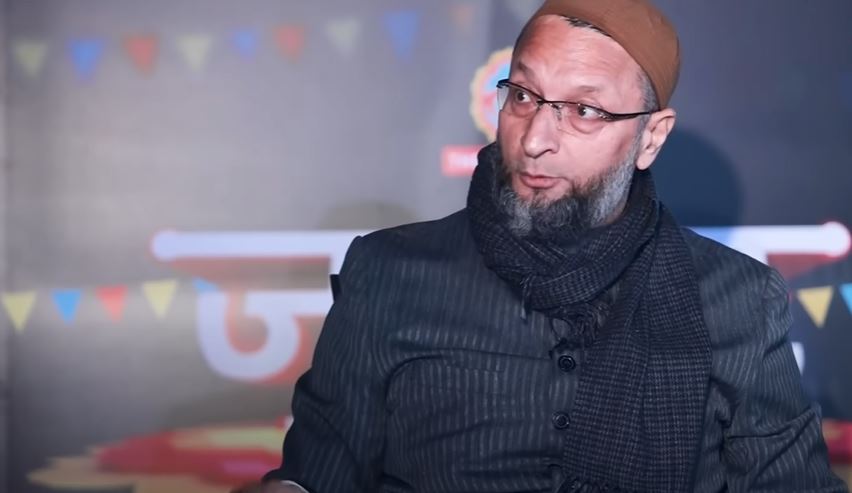AIMIM Chief’s Strong Rebuke Highlights Government’s Shortcomings
In the wake of a deadly encounter in Jammu and Kashmir’s Doda district, Asaduddin Owaisi, the leader of the All India Majlis-e-Ittehadul Muslimeen (AIMIM), has delivered a scathing critique of the Narendra Modi-led government. The incident, which resulted in the deaths of four soldiers, has brought the issue of terrorism back into the national spotlight, with Owaisi asserting that the current administration has utterly failed to manage the escalating threat.
Rising Terrorism in Jammu: A Disturbing Trend
Referring to the recent spate of terror attacks in the Jammu region, Owaisi highlighted a disturbing trend: since 2021, over 31 terrorist incidents have occurred in the area, a frequency not witnessed even during the peak of militancy. “It is a complete failure of the Modi government… they are not able to control terrorism,” Owaisi declared. The Hyderabad MP’s condemnation came shortly after the tragic deaths of four Army personnel, including an officer, who were fatally injured in a gunfight with heavily armed terrorists in Doda on the evening of July 15.
Owaisi’s denunciation did not stop at the central government. He also criticized the administration in Maharashtra, led by Chief Minister Eknath Shinde, accusing it of inaction in the face of targeted attacks on mosques. “The government is behaving like a mute spectator,” he remarked, pointing to what he perceives as a broader pattern of negligence and incompetence across different levels of governance.
The Doda Incident: A Grave Failure
The incident in Doda has sparked a wave of criticism against the Modi government. Owaisi’s remarks underscore the severity of the situation. “What has happened in Doda is… this area is way too far from the LoC, and how [is it that] the terrorists infiltrated and engaged in a fight with our security personnel, resulting in the deaths of four army personnel, including an officer?” he questioned. The implication is clear: the government’s security measures are insufficient, and its strategies ineffective.
Owaisi’s critique extended to Prime Minister Modi’s earlier rhetoric. He took a jab at Modi’s campaign promise to “enter their territory to eliminate them,” asking pointedly, “What is happening now?” This rhetorical question aims to highlight the discrepancy between the government’s promises and its actual performance on the ground.
A Pattern of Neglect and Inadequacy
The AIMIM chief also referred to data to support his claims. Since 2021, nearly 48 security personnel have lost their lives in terrorist attacks in the Jammu region. This, he argues, is indicative of a systemic failure in information sharing and local engagement. “There is no information-sharing system, and there are no contacts with locals, especially youths,” Owaisi stated, suggesting that these gaps in intelligence and community relations are contributing to the escalating violence.
Furthermore, Owaisi questioned Prime Minister Modi’s assertions that terrorist incidents had declined following the abrogation of Article 370 in Jammu and Kashmir. He implied that the government’s narrative does not align with the reality on the ground, where terrorism remains a persistent threat.
Broader Geopolitical Concerns
Owaisi’s criticism also touched on broader geopolitical issues, particularly regarding China. He alleged that the Modi government is reluctant to address China’s role in the region, despite ongoing trade relations worth billions of dollars. “This government is scared of taking the name of China,” he alleged, implying a lack of transparency and accountability in the government’s foreign policy.
The situation in Jammu and Kashmir remains volatile, with frequent clashes between security forces and terrorists. The recent incident in Doda is a stark reminder of the challenges that lie ahead for the Indian government. Owaisi’s strong words reflect a growing frustration among political leaders and the public with the current administration’s handling of security issues.
Summary
In summary, Asaduddin Owaisi’s critique of the Modi government’s handling of terrorism in Jammu and Kashmir underscores a perceived failure to control the rising threat. The Doda incident, which claimed the lives of four soldiers, has sparked renewed scrutiny of the government’s security policies. Owaisi’s pointed remarks highlight the need for a more effective strategy to combat terrorism and ensure the safety of both security personnel and civilians. As the debate continues, it remains to be seen how the government will respond to these challenges and address the concerns raised by critics.
Key Learning Points
| Key Learning Points |
|---|
| Owaisi criticizes Modi government for failing to control terrorism in Jammu. |
| Since 2021, over 31 terrorist attacks have occurred in the Jammu region. |
| The Doda incident resulted in the deaths of four Army personnel. |
| Owaisi questions the effectiveness of the government’s security measures. |
| He also highlights broader geopolitical concerns, particularly regarding China. |

Sunil Garnayak is an expert in Indian news with extensive knowledge of the nation’s political, social, and economic landscape and international relations. With years of experience in journalism, Sunil delivers in-depth analysis and accurate reporting that keeps readers informed about the latest developments in India. His commitment to factual accuracy and nuanced storytelling ensures that his articles provide valuable insights into the country’s most pressing issues.



